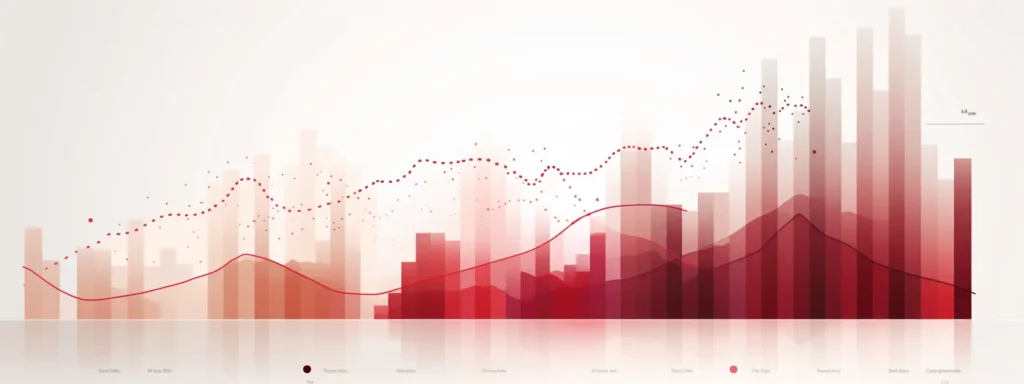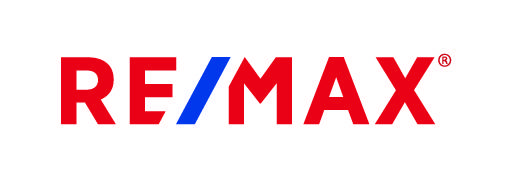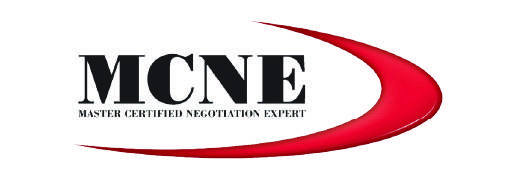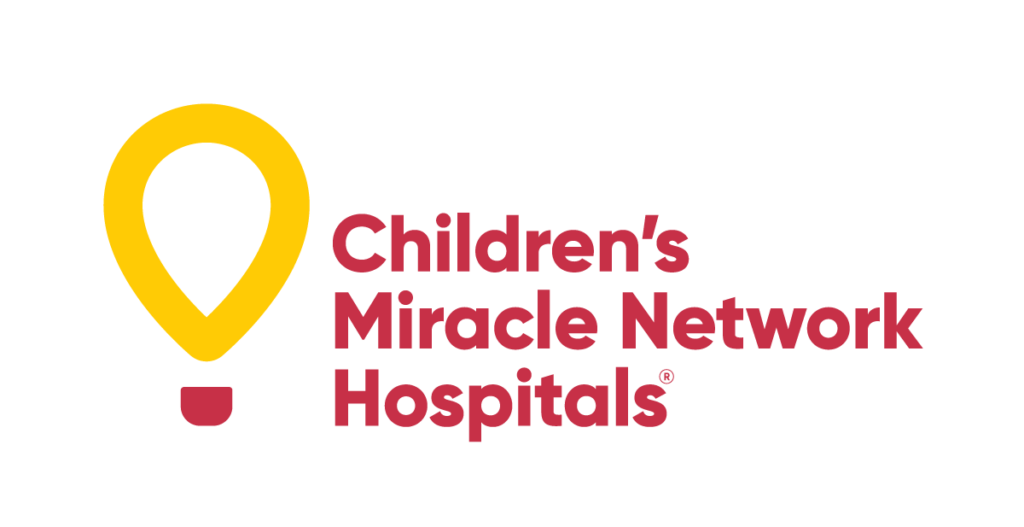When purchasing your first home, obtaining a mortgage loan is a crucial step in making your dreams a reality. However, the process can seem intimidating and complex, often leading to misconceptions that may hinder your progress.
In this article, we aim to address the importance of preparing for a first mortgage loan and debunk common misconceptions surrounding the topic.
Table of Contents:

Importance of Preparing for a First Mortgage Loan
Acquiring a first mortgage loan is a significant milestone for first-time home buyers. Adequate preparation ensures a smoother and more favourable experience throughout the application process. Lenders consider credit scores a primary factor in determining loan eligibility and interest rates. Improving your credit score is crucial before applying for a mortgage loan, as it directly impacts your borrowing capacity.
Saving for a down payment is essential to secure favourable loan terms. When creating a home budget, financial discipline and understanding your desired loan amount are vital factors. Obtaining pre-approval demonstrates your seriousness as a buyer and allows you to know your loan limit. This knowledge empowers you during the home search and helps narrow options within your budget.
| Did you know? To qualify for a mortgage loan, individuals need to pass a so-called “stress test.” A bank’s “stress test” checks if you can afford payments at a qualifying interest rate. This rate is usually higher than the actual rate in your mortgage contract. |
4 Common Misconceptions about First Mortgage Loans
Let’s address some misconceptions surrounding first mortgage loans:
1. Perfect Credit Score
Contrary to popular belief, you don’t need an excellent credit score to qualify for a mortgage loan. Lenders offer various loan programs tailored to different credit profiles, providing opportunities for individuals with lower credit scores.
2. Large Down Payments Only
A larger down payment can lead to better loan terms, but it’s not the only option. Many loan programs offer flexible down payment options, allowing borrowers to secure a loan with a lower upfront cost.
3. Complex Application Process
While the mortgage loan application process may seem intricate, it’s manageable with proper guidance. Understanding the required documentation and seeking professional assistance can simplify the process.
4. Closing Costs
Some first-time buyers mistakenly believe that closing a mortgage loan solely involves a down payment. However, additional fees, known as closing costs, are incurred during the final stages of the transaction. Being aware of these costs can help you budget accordingly.
Definition of a Mortgage Loan
A mortgage loan is a financial product designed to assist individuals in purchasing real estate. It involves borrowing money from a lender to buy a home, with the property as collateral for the loan. Repayment occurs over a specified period, usually through monthly principal and interest installments.
If you are looking for an in-depth guide on what mortgages are, then we suggest reading our mortgage instructions article.
Mortgage loans play a pivotal role in personal finance, allowing people to achieve their dreams of becoming homeowners. Whether you want to buy a charming cottage, a spacious apartment, or a beautiful villa, knowing mortgage loans is critical for making educated decisions about one of your most significant financial investments.

7 Types of Mortgage Loans
When it comes to purchasing a home in Canada, various types of mortgage loans are available to suit different needs and financial situations. Understanding the available options can help you make an informed decision. Let’s explore some common types of mortgage loans in Canada.
1. Conventional Mortgage Loan
A conventional loan is a traditional kind of loan in which the borrower contributes a down payment of at least 20% of the home’s purchase price. With this type of loan, mortgage default insurance is not required.
2. High-Ratio Mortgage Loan
A high-ratio mortgage loan is for individuals with a down payment of less than 20% of the home’s buying price. In such cases, mortgage default insurance is mandatory, which protects the lender in case of default.
3. Fixed-Rate Mortgage Loan
With a fixed-rate mortgage loan, the interest rate stays consistent throughout the term of the loan. This provides stability as your monthly payments remain the same, regardless of changes in the interest rate.
4. Variable-Rate Mortgage Loan
A variable-rate mortgage loan has an interest rate that varies based on changes in the market interest rates. The interest rate may change during the term, affecting your monthly payments. This type of loan often offers flexibility and the potential for savings if interest rates decrease.
5. Open Mortgage Loan
An open mortgage loan allows borrowers to make additional payments or pay off the entire loan without penalties before the end of the term. This type of loan is suitable for individuals who anticipate selling their property in the near future or who have the means to make lump sum payments.
6. Closed Mortgage Loan
A closed mortgage loan has specific terms and conditions, including limitations on prepayment options. While closed mortgage loans offer lower interest rates compared to open mortgages, they often have prepayment penalties if you want to pay off the loan early.
7. Cash Back Mortgage Loan
Some lenders offer cash-back mortgage loans where borrowers receive a percentage of the mortgage amount as a cash payment at closing. This cash can be used for various purposes, such as moving costs or home improvements.
It’s important to consult with a mortgage professional or financial advisor to determine the most suitable type of mortgage loan for your specific circumstances. They can provide personalized guidance and help you navigate the complexities of the mortgage market in Canada.
Factors to Consider When Choosing a Mortgage Loan
When selecting a mortgage loan, several factors should be taken into account. Your credit score significantly determines your loan options and the interest rates you’ll qualify for. Also, improving your credit score before applying for a mortgage loan is critical for obtaining better terms.
Furthermore, the amount you can afford to put toward a down payment affects the loan type and terms. Saving diligently and exploring down payment assistance programs can help reduce this upfront cost.
Obtaining loan pre-approval from a lender helps you understand your budget and strengthens your position as a buyer. It provides a clear understanding of the loan amount you qualify for, making it easier to search for homes within your means. Analyze your income, expenses, and lifestyle to determine a realistic home budget.
Consider the mortgage payment and other homeownership costs such as property taxes, insurance, and maintenance. Carefully review the loan terms offered by different lenders. Look for factors like interest rates, loan duration, and whether the loan is fixed-rate or adjustable-rate.
Evaluate how these terms align with your financial goals and preferences. When nearing the end of the loan process, be prepared for closing costs. These expenses include fees for appraisal, title search, attorney fees, and more.
Understanding these costs allows you to plan your finances accordingly. Remember, each borrower has unique circumstances, and what works for someone else may not be your best choice.
| Did you know? RBC mortgages account for 27.4% of Canada’s $992 billion mortgage market, making the Royal Bank of Canada the country’s largest mortgage lender. |

How to Prepare for Your First Mortgage Loan: 5 Easy Steps
Preparing for a first mortgage loan is an exciting milestone that many people look forward to. Whether you want to purchase your first house or invest in real estate, getting a mortgage is a big financial step that demands careful planning and preparation.
Here is Kim Huang giving us advice on how to prepare for your first mortgage loan to maximize success:
So, to put this all on paper, here are the five key points that Kim said:
1. Check Your Credit Score/Report
Your credit score plays an important part in the mortgage loan application process. It directly affects your loan eligibility and the interest rates you’ll qualify for. Here’s what you can do to improve and maintain a good credit score:
- Pay Bills on Time: Consistently making payments on time is one of the most effective ways to build a positive credit history.
- Reduce Debt: Lowering your overall debt and keeping credit card balances low can improve your credit utilization ratio, positively impacting your credit score.
- Monitor Your Credit: Checking your credit report on a regular basis helps you to identify and address any errors or discrepancies that may negatively affect your score.
Contrary to popular belief, you don’t need an excellent credit score to qualify for a mortgage loan. Lenders offer various loan programs tailored to different credit profiles, providing opportunities for individuals with lower credit scores. Your credit report needs to be accurate and in good standing! Ensure to pay off any outstanding debt and maintain a healthy credit score.
2. Save for a Down Payment
Saving for a down payment is a big aspect of preparing for a first mortgage loan. While the ideal down payment amount varies depending on the loan type and lender requirements, consider the following tips:
- Set a Savings Goal: Determine the down payment amount you need based on your target home price. Set a realistic savings goal and create a timeline to track your progress.
- Cut Expenses: Look for areas where you can reduce your expenses to allocate more funds towards saving for a down payment. Consider cutting unnecessary subscriptions or dining out less frequently.
- Explore Assistance Programs: Investigate down payment assistance programs or grants that may be available to first-time home buyers. These programs can provide additional financial support.
A larger down payment can lead to better loan terms, but it’s not the only option. Many loan programs offer flexible down payment options, allowing borrowers to secure a loan with a lower upfront cost. Large, medium, or small – whichever you decide, make sure to save for it.
Save early, save smart. This not only reduces your loan amount but will also show financial responsibility to your lender, helping them make an easier decision, as they’d be more confident that you’ll pay back the loan.
3. AssessYour Financial Situation and Determine Your Budget
Determine your budget and act accordingly. Check your financial situation (income, expenses, and future goals). And make sure they are in accordance with the credit loan that you’re trying to get. This assessment will help you determine your affordability and set realistic expectations.
It is recommended to evaluate your monthly income and existing expenses. Calculate how much you can comfortably allocate towards a mortgage payment without compromising your financial stability.
Lenders analyze your debt-to-income ratio to assess your ability to handle additional debt. Aim for a ratio below 43% to increase your chances of loan approval. Furthermore, building an emergency fund is essential to manage unexpected expenses that may arise during homeownership. Aim to have at least three to six months’ worth of living expenses saved.
4. Check and Compare Multiple Lenders
Don’t just take the first option that’s on the table. Do proper research. Evaluate multiple lenders and mortgage options. Compare interest rates, terms, and fees. You are looking to find the best fit for your financial needs. You are here to do the lenders a favour, but instead, favour yourself.
5. Gather all the Necessary Documentation
And finally, gather all the necessary documentation. Don’t leave out that one piece of paper that will stall the whole process. Depending on the lender, the documentation might vary, but we’re usually looking at income statements, tax returns, bank statements, and identification.
| Did you know? A lender can deny you a mortgage even if you’ve been preapproved. Before approving your loan, a lender will confirm that the property you seek satisfies specific standards. These standards will differ from lender to lender. |

Securing a First Mortgage Loan
Getting a first mortgage loan is a big step toward becoming a homeowner and a turning point in the lives of many people. Many individuals make one of their biggest financial investments when they buy a home. To make sure the process of obtaining a first mortgage loan goes smoothly, it’s important to understand the process.
1. The Application Process
Once you have found the perfect home and are ready to proceed with the mortgage loan, you will need to go through the application process. Prepare the necessary documents, such as identification, proof of income, tax returns, and bank statements.
Complete and submit the mortgage loan application to your chosen lender. Provide accurate and detailed information to ensure a smooth review process. The lender will review your application, verify the information provided, and assess your creditworthiness.
They may request additional documents or conduct a home appraisal. If your application is approved, you will receive a formal loan approval letter. This document outlines the terms and conditions of the loan.
2. Understanding the Terms of the Loan
Before proceeding with the loan, it’s crucial to thoroughly understand the terms and conditions. Key factors to consider include:
- Interest Rate: The interest rate determines the cost of borrowing. It can be fixed or adjustable, so make sure you understand which type of rate you are being offered.
- Loan Duration: The duration of the loan, also known as the loan term, determines the number of years you will have to repay the loan. Standard terms are 15, 20, or 30 years.
- Monthly Payments: Review the estimated monthly payments to ensure they fit your budget. Consider the principal and interest and factors like property taxes and insurance.
- Closing Costs: Understand the closing costs associated with the loan. These costs include fees for appraisal, title search, attorney fees, and other administrative expenses.
| Did you know? It is recommended to put aside around 3% of the property’s total purchase price to cover the closing fees. |
3. Closing the Deal
The final step in securing a first mortgage loan is the closing process. During this stage, you should carefully review the loan documents, including the mortgage note, deed of trust, and other relevant paperwork.
Prepare the necessary funds to cover the closing costs. These costs are typically paid in the form of a cashier’s check or wire transfer. Sign all the required documents acknowledging your acceptance of the loan terms and your responsibilities as a borrower.
Once all documents are signed, the lender will fund the loan, and the transaction will be recorded with the appropriate government office.
FAQ
What is a good credit score for a first-time home buyer?
A good credit score for a first-time home buyer is typically considered to be around 620 or higher. However, higher scores can result in better loan terms.
How much should I save for a down payment?
The amount you should save for a down payment depends on various factors, but it is generally recommended to save a minimum of 20% of the home’s purchase price.
What is the process of getting a mortgage loan?
The process of getting a mortgage loan involves assessing your financial situation, improving your credit score, saving for a down payment, getting pre-approved, and going through the application, approval, and closing processes.
How do I choose the right mortgage loan for me?
To select the right mortgage loan, consider factors such as your financial situation, loan terms, interest rates, and closing costs. It’s essential to compare different loan options and consult with a knowledgeable mortgage professional.
What is a first mortgage loan?
A first mortgage loan is a loan that is secured by a property and takes priority over any other loans or liens on the property.
How long is a first mortgage?
The duration of a first mortgage loan varies but is commonly 15, 20, or 30 years.
How many months before the first mortgage payment?
The number of months before the first mortgage payment is typically determined by the terms of the loan agreement. It is usually around 30 to 45 days after closing.

First mortgage loan – Final Words
To get a first mortgage loan, you must be well-prepared and know how the process works. Looking at your finances, improving your credit score, and saving money for a down payment is essential. By getting pre-approved for a loan, you can determine how much you can spend and look for homes in your price range.
When picking a mortgage loan, consider interest rates, loan length, and closing costs. It’s important to talk to a mortgage professional or financial expert to determine what kind of loan will work best for you. Lastly, once you’ve found the right home, you’ll need to go through the application process, review the loan terms, and prepare for closing costs.
Following these tips and putting common myths to rest, you can confidently get your first mortgage loan and make your dream of owning a home come true.













